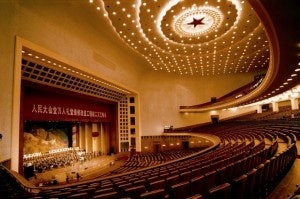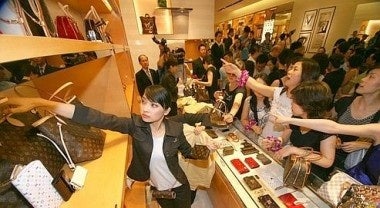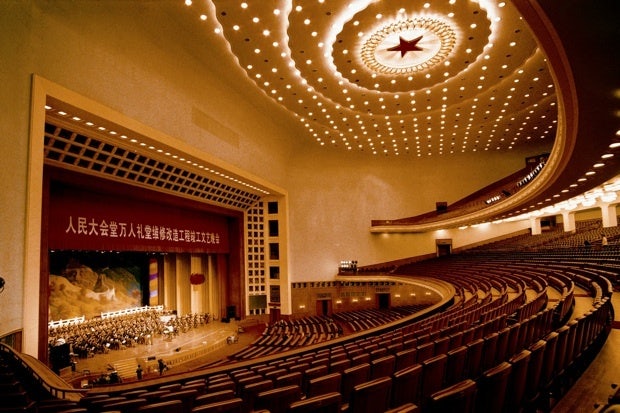Will New Bans Crimp China's High-End Market?#

Tough times may lie ahead for luxury-mad Chinese officials, as Beijing announced its latest edict earlier this week: a complete ban of government splurges on luxury goods with public funds, set to take effect on October 1. This comes after the Chinese government told its civil servants on Monday to stick to "a frugal working style," prohibiting them from using government funds to purchase luxury goods. Those who do not comply with the new regulations, Xinhua noted, could be fired.
Notorious for their gift-giving culture, whether for the aim of cultivating business deals, impressing peers, or more murky reasons, many of China’s civil servants have been all but frugal in their spending habits when it comes to gifting. Spoils of their spending have included lavish banquets, luxury cars, expensive liquor, designer handbags and diamond-studded watches. However, the tides seem to be changing (at least on a superficial level), as Beijing has already made moves towards increasing restrictions on public buying behavior. Just a week before its latest "luxury ban," the government announced that it would stop serving shark's fin, a highly controversial and expensive ingredient, at state banquets.
Government officials in the coastal city of Wenzhou also made efforts to quell public ire over public spending this week, barring officials from throwing lavish dinners and limiting employees to meals costing no more than 60 yuan (US$9.40) per person. Smarting from a years-long spending binge, Wenzhou has also culled its governmental car fleet, selling off 215 official vehicles last month.
It's widely thought that China’s efforts to curb expenses on what it dubs the "three publics" -- referring to cars, banquets and foreign travel -- is an attempt to improve the government’s public image. Long criticized for the behavior of public officials and their quasi-aristocratic behavior, the Chinese government’s recent attitude check may be a response to the angry mob that is social media commentators on platforms like Weibo. After spotting officials clutching expensive handbags and decked out in gold-plated Rolex watches at the country's annual legislative meetings in March, social media ran rampant with voices unhappy with official profligacy. Editor of the nationalistic state-run newspaper, the Global Times, Hu Xijin, recently hopped on the bandwagon, writing, "If 'three publics' spending can be successfully controlled, it could be a turning point in the building of clean government in China and an inspiration to the entirety of Chinese society."

Hu's remark, however, was roundly laughed off by Chinese netizens, with one Weibo user remarking, "One day the monkey king tells the other monkeys, each monkey gets to eat one banana, no more. Do you think that group of monkeys is actually going to listen, Editor Hu?"
While some analysts speculate that a ban on government luxury spending will slow down luxury sales, which are already growing more slowly than last year, others expect "consumer censorship" to have a limited effect on high-end sales or entrenched bureaucratic behavior. As Jing Daily noted back in February, similar high-profile announcements of government bans on luxury cars like Audis and BMWs, and plans to swap foreign brands for domestic ones, have had a limited impact on nationwide sales.
Unless a strict monitoring system is implemented, government officials will likely continue to spend, finding alternative ways to sustain lavish gifting under the radar — it’s just a matter of time and strategy. Consumer censorship may just spawn more discreet, if not more creative, modes of spending. While officials may cut down on gifting the ubiquitously recognizable “LV” bag or Rolex watch, some may channel public funds towards more niche forms of giving, such as sponsored vacation getaways.
Officials may also be prompted to spend on lesser known, boutique specialty items that fly by the average government critic. While officials in "power centers" like Beijing and Shanghai may experience more difficulties maneuvering around such restrictions, those stationed further afield, further from Beijing's gaze, may carry on with their usual spending. As the oft-mentioned Chinese saying goes, "The sky is high and the emperor far away."
